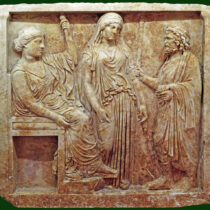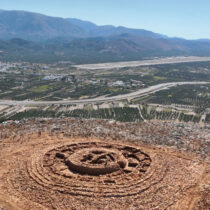A critical analysis of the alternative choices proposed for the town-planning of the newly founded city of Athens is attempted in this article.All proposals place special emphasis on the harmonious coexistence of the actual landscape of the new city with its architectural heritage of antiquity. Although none of the proposals was fully materialized and the town-planning development of Athens followed its own unpredictable and complex route, the basic idea for the formation of an extended archaeological zone around the “polis” hill, that would function as the monumental nucleus of the cultural identity of the Greeks, has survived all the adventures of the city’s development and it is now at an advanced stage of realization.
The foundation of a New Athens. Town-planning proposals and aesthetic conceptions in the years 1830-1840 on the development of the New City.Emphasis given to the ancient architectural heritage and historic landscape
07 Aug 2012
by Archaeology Newsroom
- A
- A
- A


